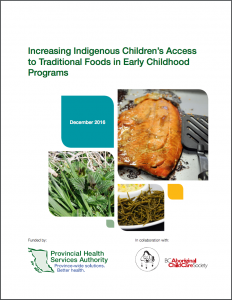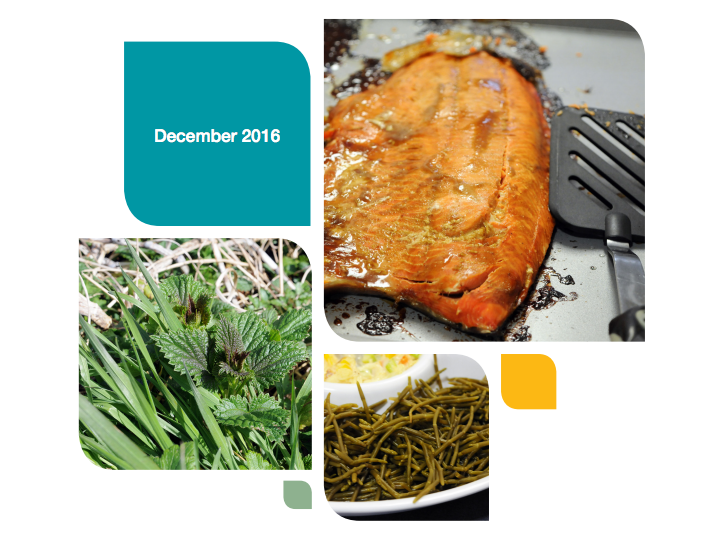 Indigenous cultures and identities are closely connected to the lands and waters where traditional foods are obtained. Harvesting, preparing and sharing traditional foods are important practices of Indigenous cultures, and traditional foods are part of a healthy diet.
Indigenous cultures and identities are closely connected to the lands and waters where traditional foods are obtained. Harvesting, preparing and sharing traditional foods are important practices of Indigenous cultures, and traditional foods are part of a healthy diet.
The Population and Public Health program, BC Centre for Disease Control, Provincial Health Services Authority (PHSA) and the BC Aboriginal Childcare Society (BCACCS) are excited to announce the release of a report, Increasing Indigenous Children’s Access to Traditional Foods in Early Childhood Programs. The report summarizes food safety barriers & facilitators to providing non-market, high-protein, traditional foods in the early childhood settings.
The project revealed that a major barrier is the current food regulatory system, specifically the Food Premises Regulation requirements that foods must be from ‘approved sources’ (eg. meat must be slaughtered and butchered in government-approved facilities.) Approved sources do not exist for most traditional foods; when approved sources do exist, they are often expensive or difficult to obtain.
Key informants identified recommendations and possible next steps, such as:
- Developing new food safety guidelines/standards specific to serving non-market high protein traditional foods in Indigenous early childhood programs (including a strong engagement process with traditional food knowledge keepers).
- Establishing a province-wide working group to build relationships between individuals/stakeholders with an interest in providing safe, non-market traditional foods in early childhood settings
- Increasing cultural competency of health authority staff working in food safety, licensing, food security and healthy eating
- Exploring opportunities to increase the capacity of early childhood educators to provide non-market traditional foods
A small group of advisory members are meeting to discuss a plan for moving this work forward.
This project was funded by PHSA and was a collaboration with the BC Aboriginal Childcare Society. All aspects of the work were informed by a robust advisory committee with representation from regional health authorities (Environmental Health Officers and Licensing Officers), First Nations Health Authority, BC Centre for Disease Control (food safety) and Aboriginal childcare centres.
You can find the full report and executive summary on the PHSA Population and Public Health website and BCACCS will be posting it as well.
Melanie Kurrein, MA RD
Provincial Manager Food Security
Population & Public Health






this is a great report, I would love to see more of our foods in our early learning centers, connecting the lands, foods and all of our educators together to feed our spirits and bodies!